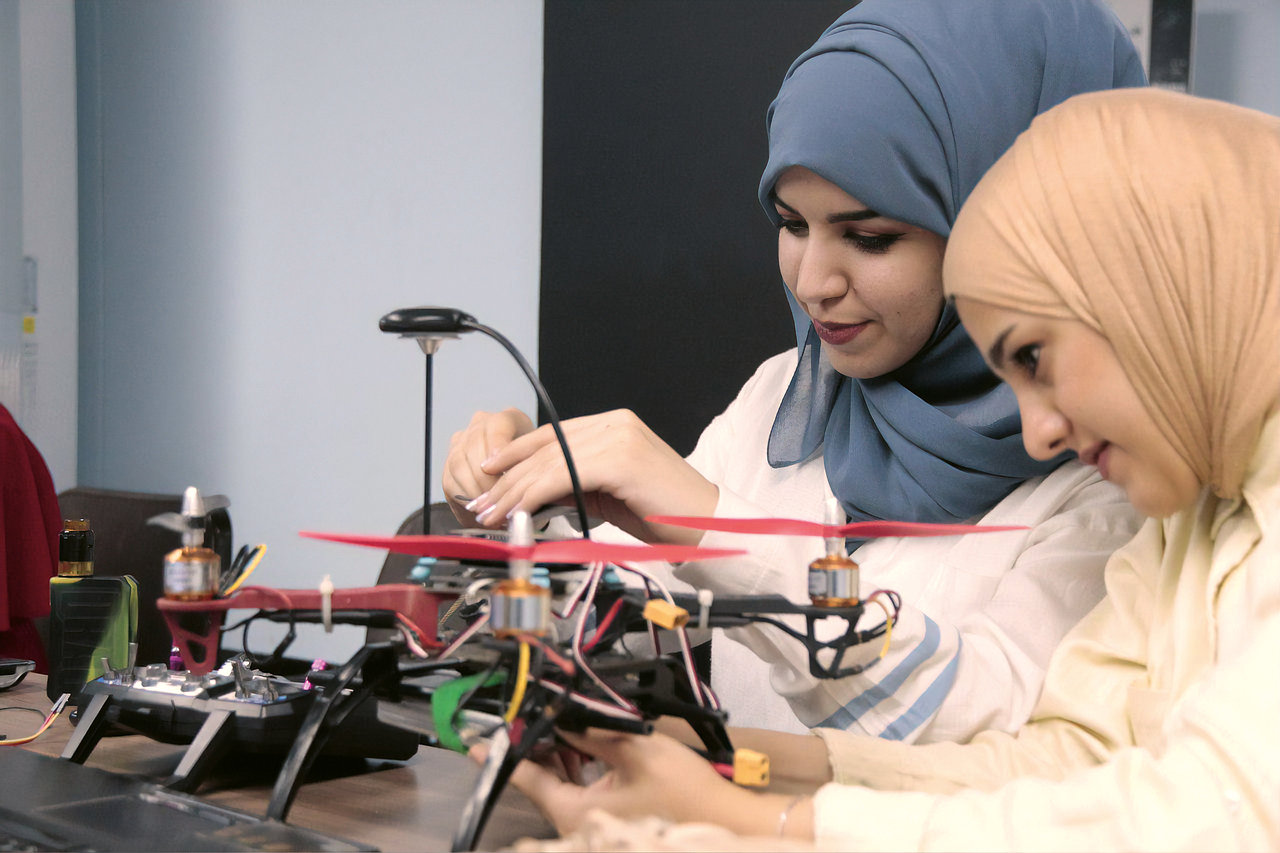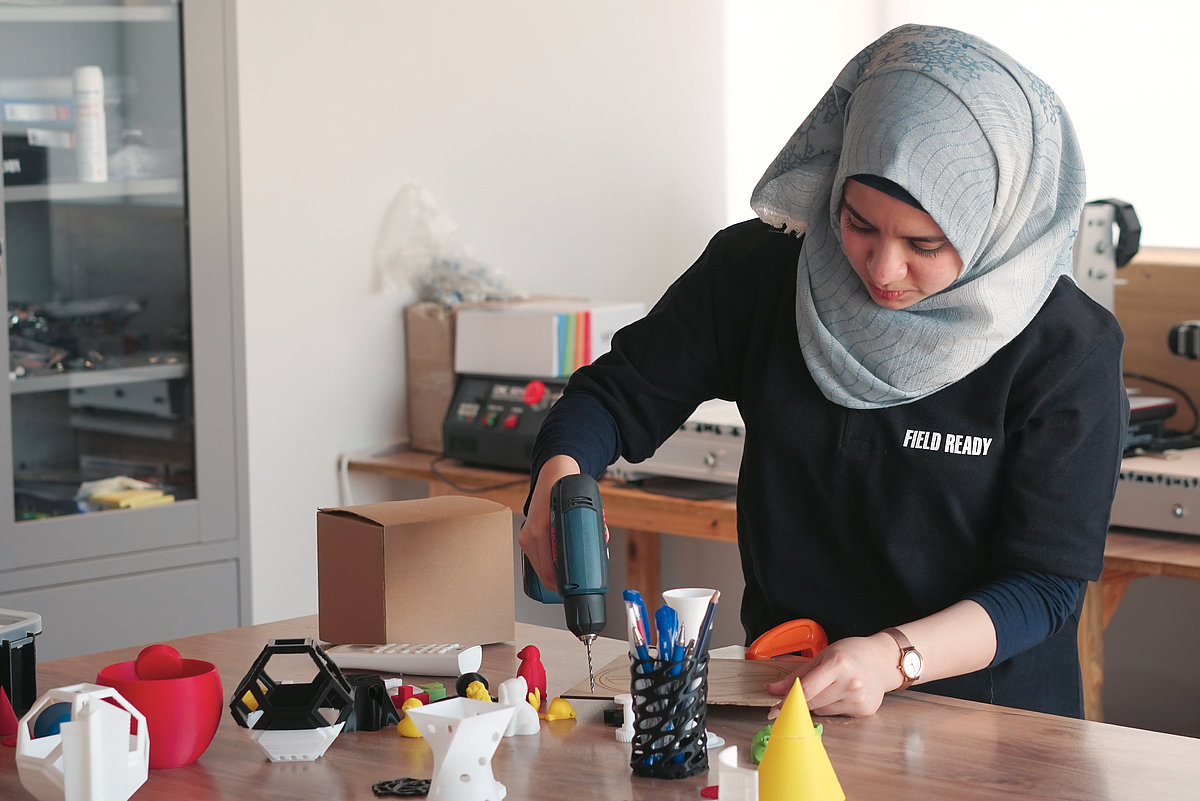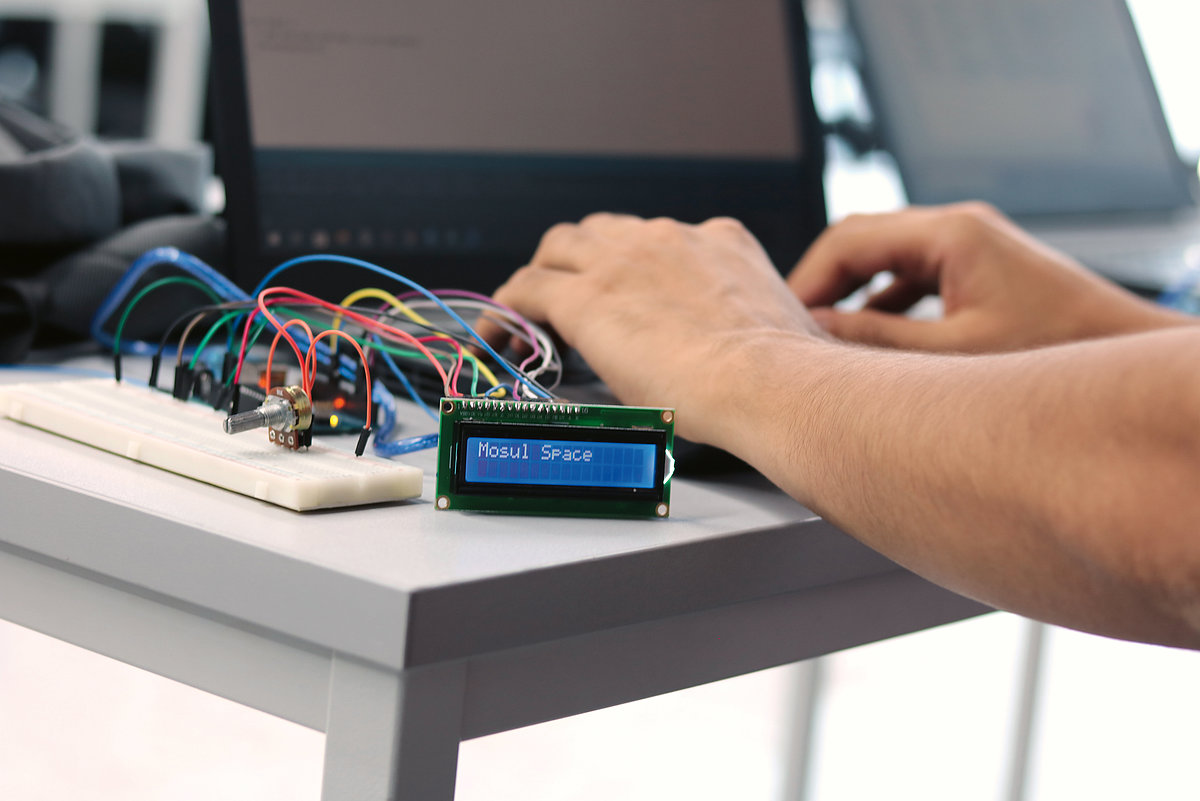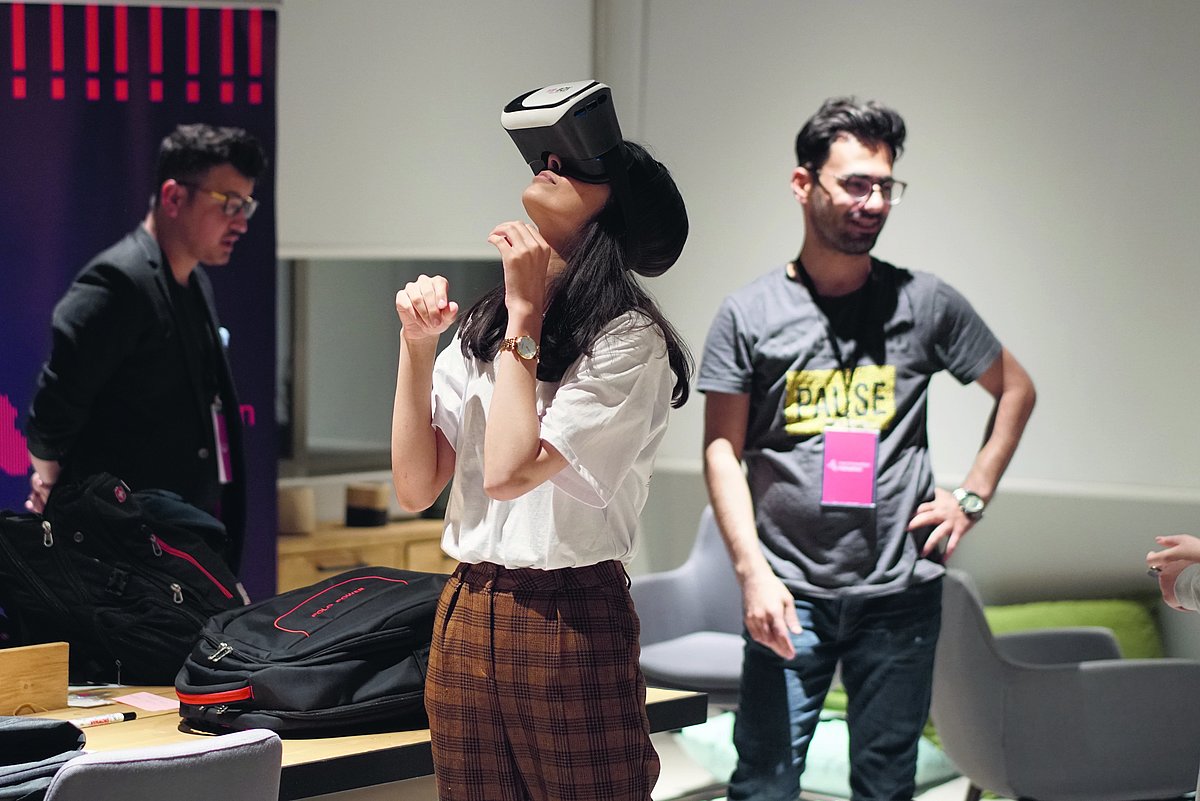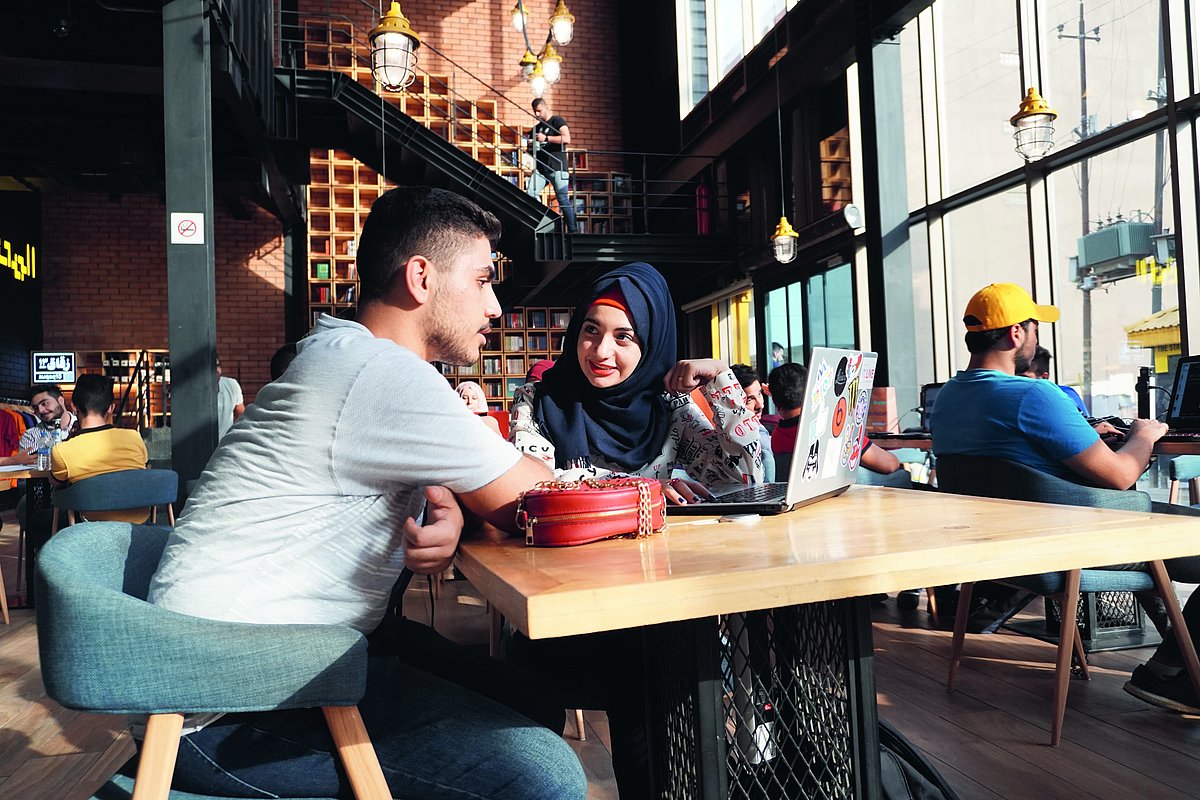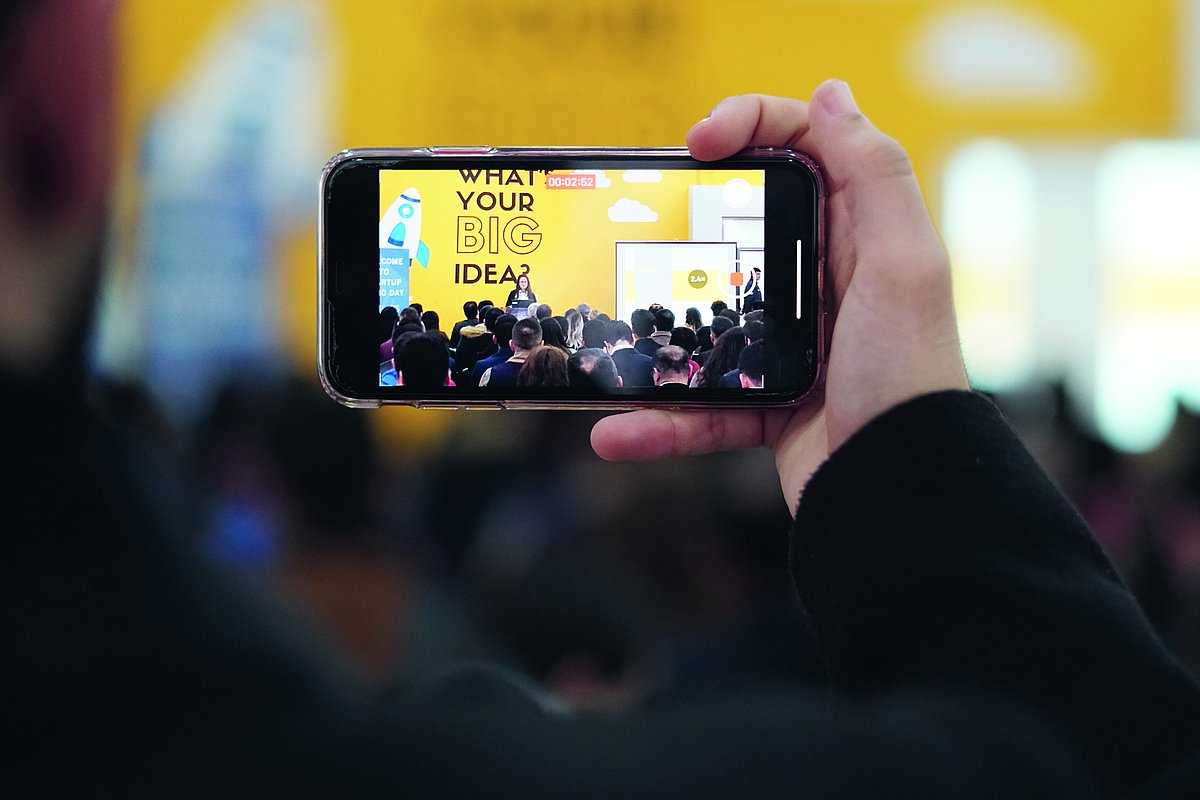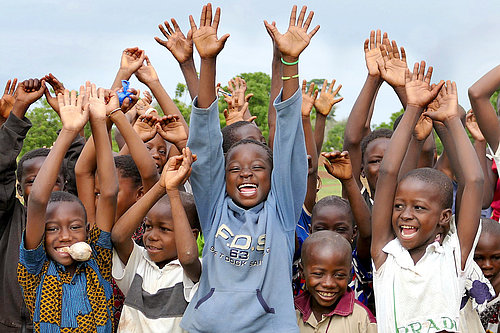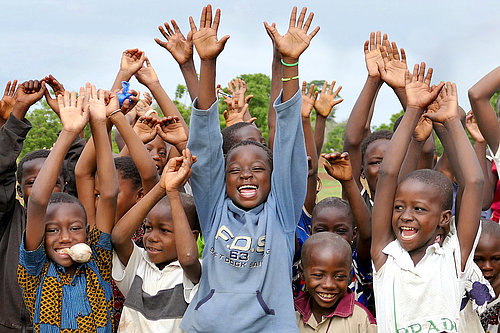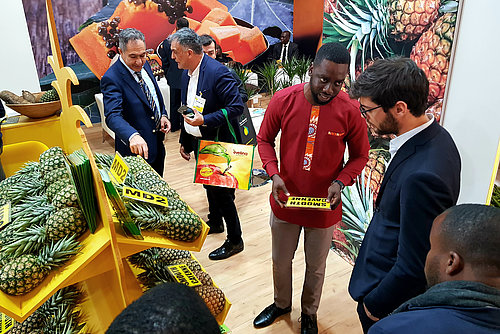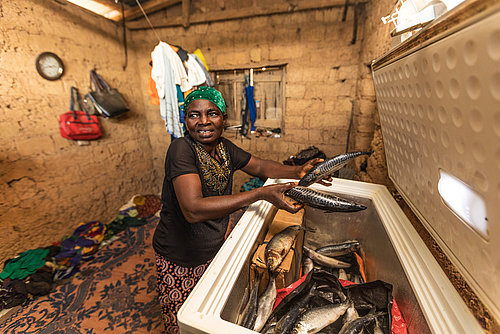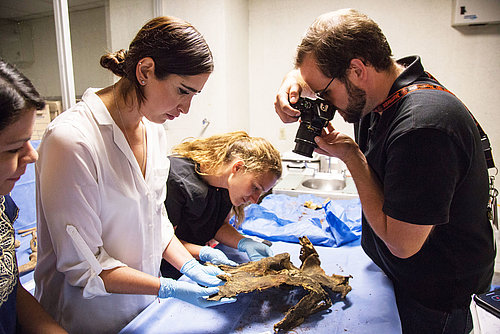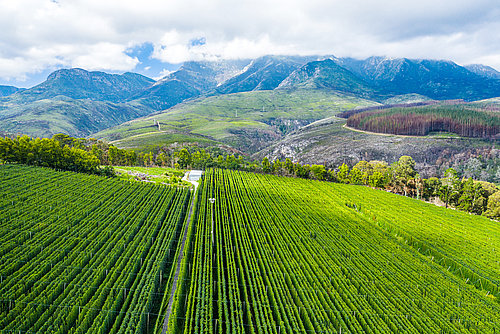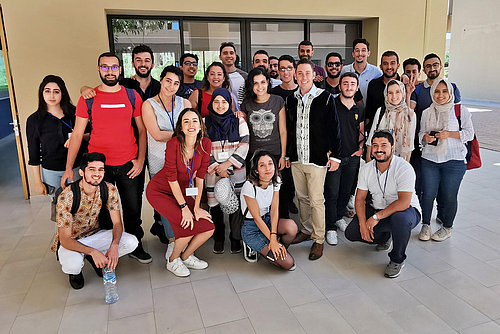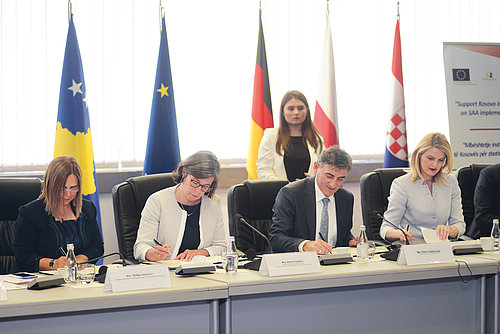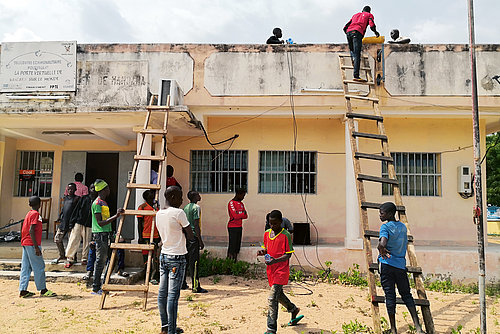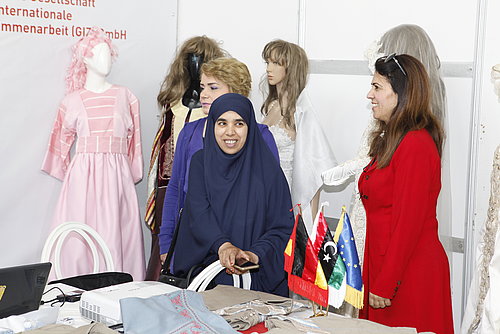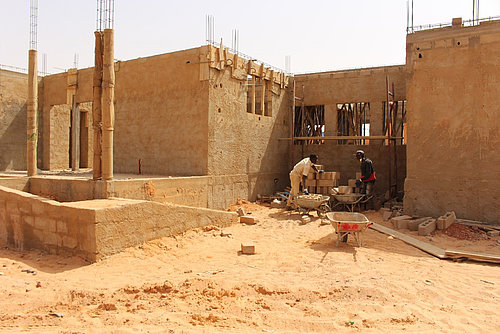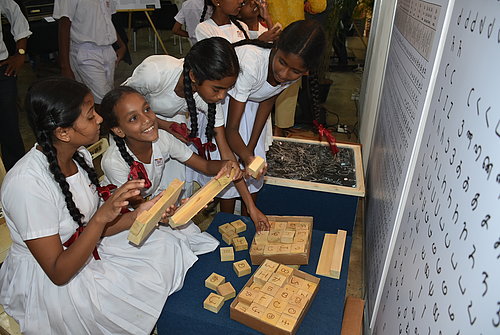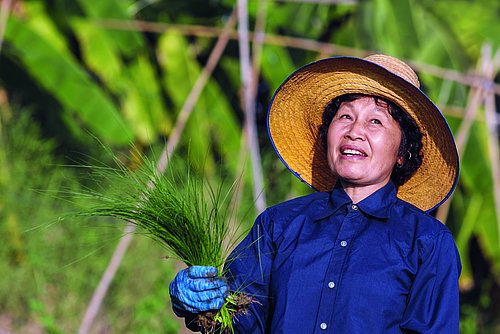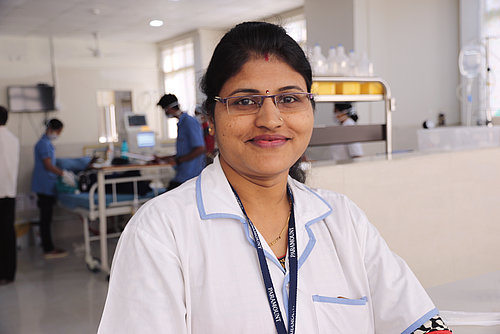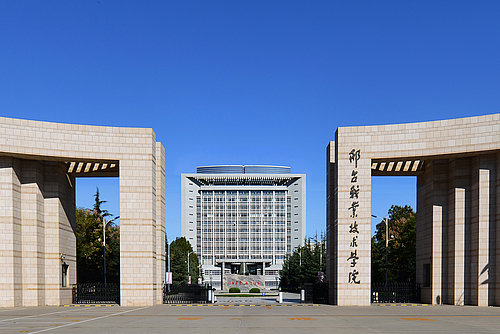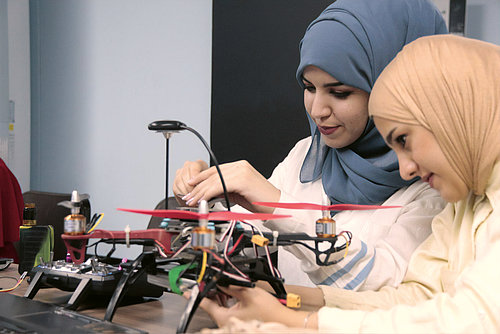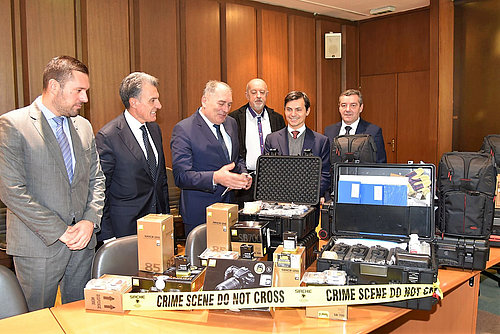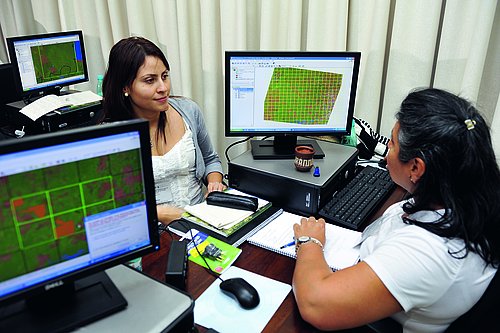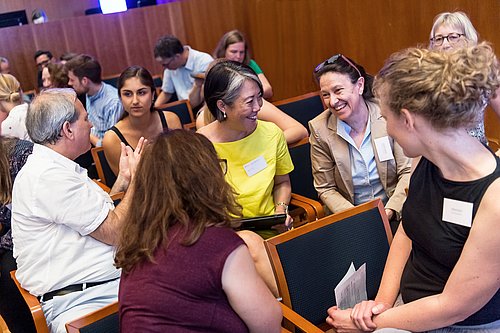The walls are covered in colourful stickers and graffiti with motivating slogans. Coffee and tea are available on the counter. Men and women sit casually at tables dotted among concrete columns, put their heads together or type away on their laptops. This loft office could be in Berlin. In actual fact, though, these young people are working 4,000 kilometres away: The Lab:Suli is located in Sulaymaniyah in northern Iraq. It’s one of five cities that took part in Iraq’s first nationwide hackathon in April 2019.
This competition – a neologism that combines the ideas of ‘hacking’ and a ‘marathon’ – illustrates one way that GIZ is helping to create digital job prospects for the country’s young people. Teams work in small groups during a hackathon to come up with technology-based solutions to specific issues. More than 700 young people attended the event in person in Iraq, with another 10,000 participating online. They delved into environmental issues, such as how to reduce plastic waste throughout the country.
Working on behalf of the German Development Ministry, GIZ is helping to promote the creation of a sustainable ecosystem for tech start-ups in Iraq. One of the aims is for women, internally displaced people and refugees, in particular, to acquire digital skills and develop their own ideas for technical initiatives that will enable them to benefit from better employment opportunities. Iraq now has five innovation hubs – in Sulaymaniyah in the north of the country, as well as in Erbil, Mosul, Basra and Baghdad. GIZ helped to set up these hubs and equipped them with coworking spaces, 3D printers, laser cutters and robotic equipment. These centres, which have different focuses and work independently of one another, were interlinked as part of the project. In addition to helping with setting up and equipping the centres, GIZ is also supporting programming courses, business training sessions and events at the five innovation hubs. Around 5,300 people have taken part to date. The courses enable Iraqis to gain skills needed by the labour market or to prepare to set up their own business. They are then connected with suitable investors or potential employers.
This is something that is extremely important in a country where almost two thirds of the population are under 25 years of age. Many of them are internally displaced people or Syrian refugees. What they have in common is that they have few employment prospects on the traditional labour market. Information and communications technology is highlighting new opportunities for them.
Hackathons overcome barriers
‘The hackathon was a huge success as it opened the eyes of many youth across the country on what can be achieved over a weekend. For most people, it was their first hackathon and it encouraged participants to think creatively and act upon their ideas for a better future for Iraq,’ underscores Zahra Shah from Re:Coded House, the innovation hub in Erbil. What’s more: the joint hackathon has overcome barriers in a country where decades of armed conflict have taken their toll. In this way, digital technology can also serve as a tool to build peace.
‘That’s when I realised that the demand is huge. Just offering training sessions and events was not going to be enough. We needed a physical space.’
Salih Mahmod from Mosul Space (© GIZ / Olivia Cuthbert)
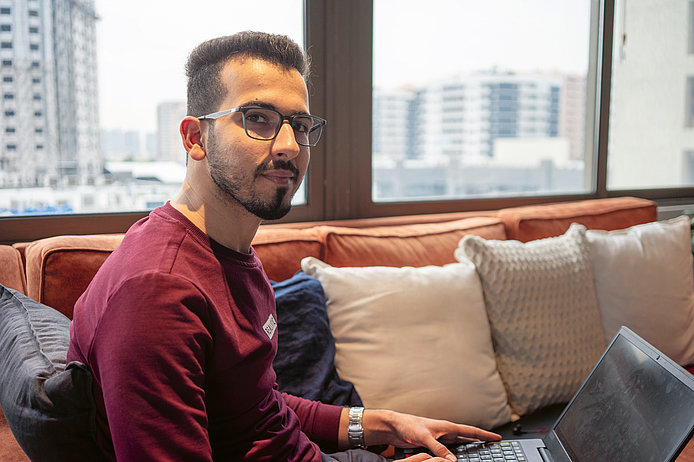
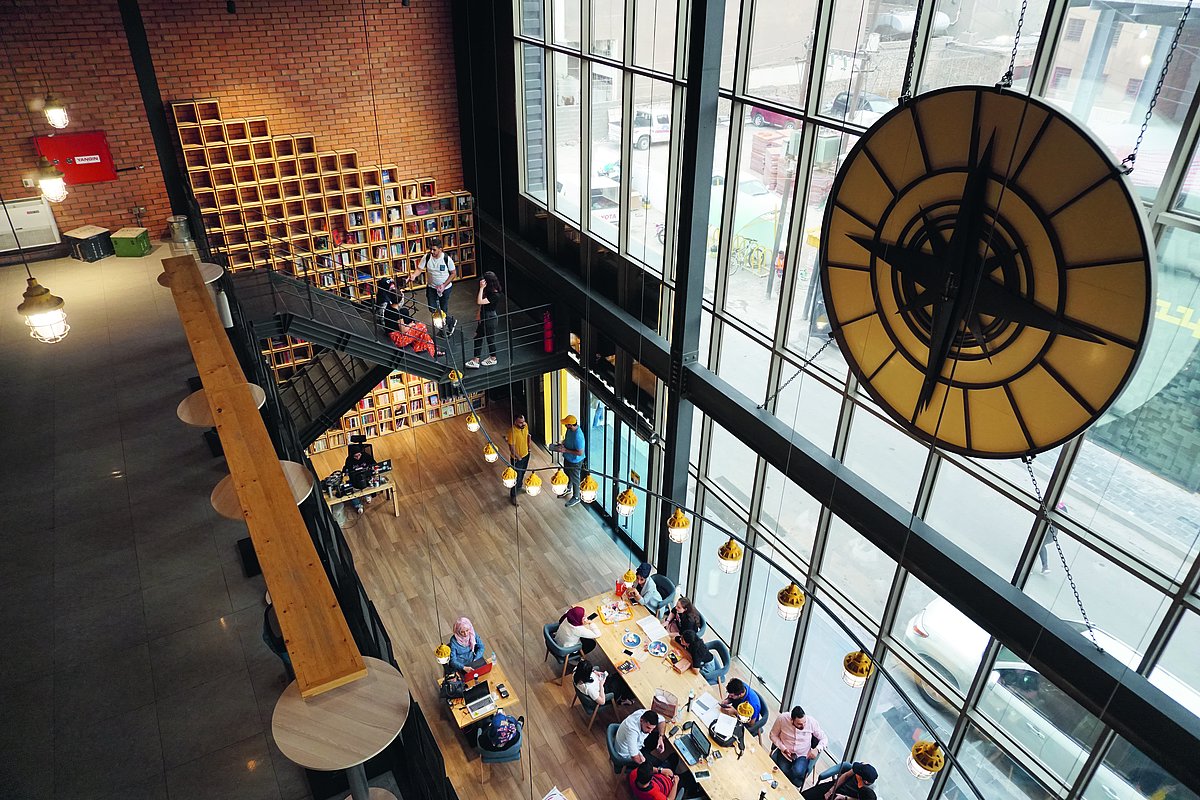
Physical locations for digital creativity
Iraq’s committed and tech-savvy young people now have a space for face-to-face social interaction and creative idea-sharing at the country’s five innovation hubs. One of them is the Mosul Space in the heart of this northern Iraqi city. Salih Mahmod, one of the region’s digital pioneers, can be found here. The 23-year-old had already offered improvised computer courses that he put together while taking refuge outside the city during the rule of the Islamic State terror militia. He returned to Mosul after it was liberated in mid-2017. An electronics and communications engineer, Mahmod recognised the opportunities that digitalisation offered for his generation and organised a festival for like-minded students. Hundreds of students attended – young people looking for alternatives to traditional careers in Iraq. ‘That’s when I realised that the demand is huge. Just offering training sessions and events was not going to be enough. We needed a physical space,’ he recalls. He had read about makerspaces online. These open high-tech workspaces equipped with the latest technology, such as 3D printers that allow prototypes to be made right there and then, can now be found all over the world. GIZ supported Mahmod in setting up Mosul Space, an innovation hub offering classrooms, flexible work stations for tech start-ups and a makerspace. The contrast between this modern environment and Mosul’s ravaged old city could not be more stark. But it symbolises one thing: a new start.
Insights into our projects in 2019
We are active in some 120 countries with 1,600 projects.
Discover the world of GIZ by learning about examples of projects undertaken in the 2019 reporting year.
We are active in some 120 countries with 1,600 projects.
Discover the world of GIZ by learning about examples of projects undertaken in the 2019 reporting year.
Are you interested in other GIZ projects?
